Quotes & Sayings About Quantification
Enjoy reading and share 15 famous quotes about Quantification with everyone.
Top Quantification Quotes
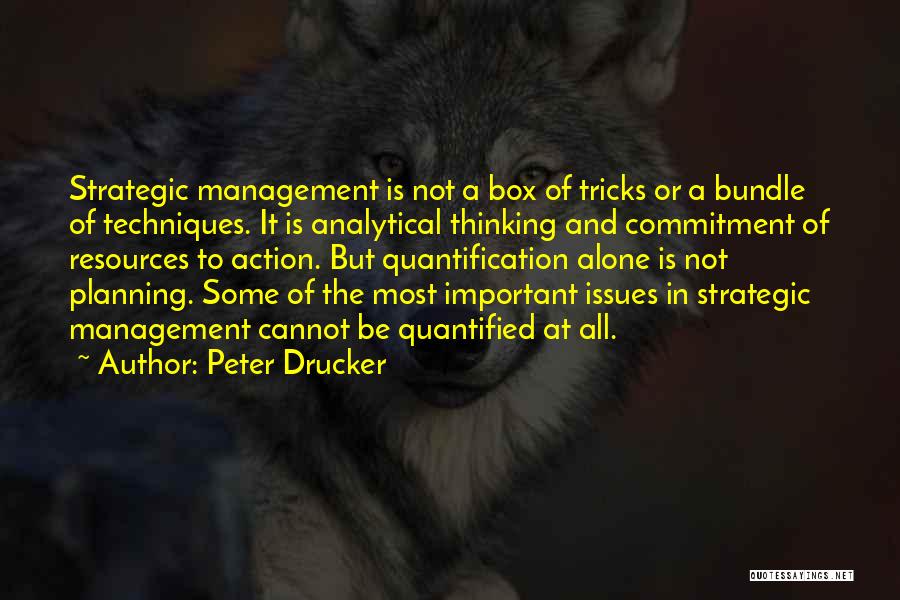
Strategic management is not a box of tricks or a bundle of techniques. It is analytical thinking and commitment of resources to action. But quantification alone is not planning. Some of the most important issues in strategic management cannot be quantified at all. — Peter Drucker
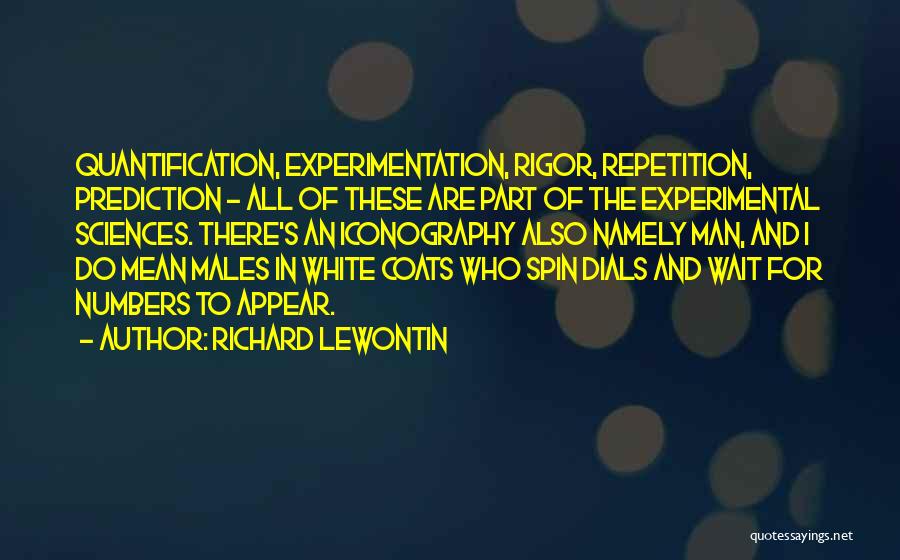
Quantification, experimentation, rigor, repetition, prediction - all of these are part of the experimental sciences. There's an iconography also namely man, and I do mean males in white coats who spin dials and wait for numbers to appear. — Richard Lewontin
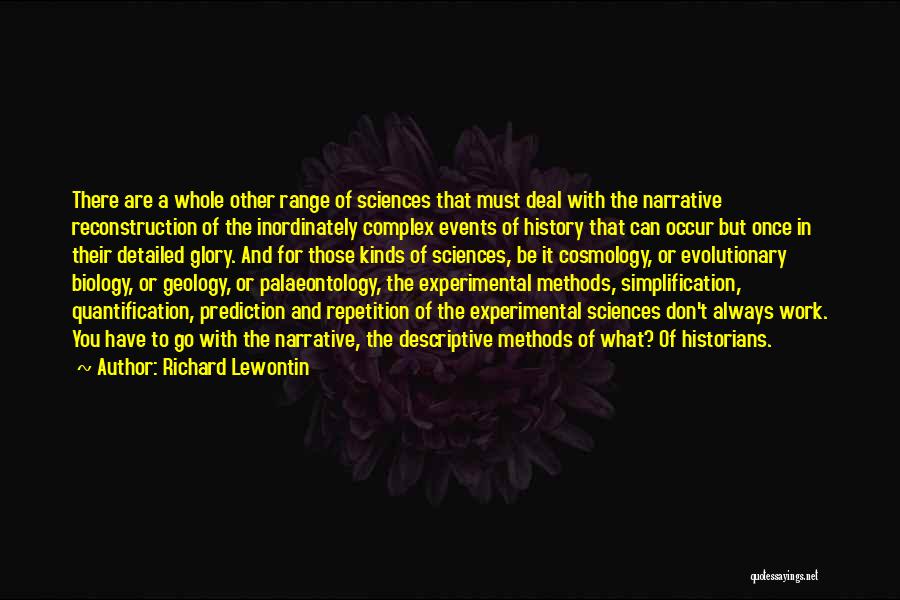
There are a whole other range of sciences that must deal with the narrative reconstruction of the inordinately complex events of history that can occur but once in their detailed glory. And for those kinds of sciences, be it cosmology, or evolutionary biology, or geology, or palaeontology, the experimental methods, simplification, quantification, prediction and repetition of the experimental sciences don't always work. You have to go with the narrative, the descriptive methods of what? Of historians. — Richard Lewontin
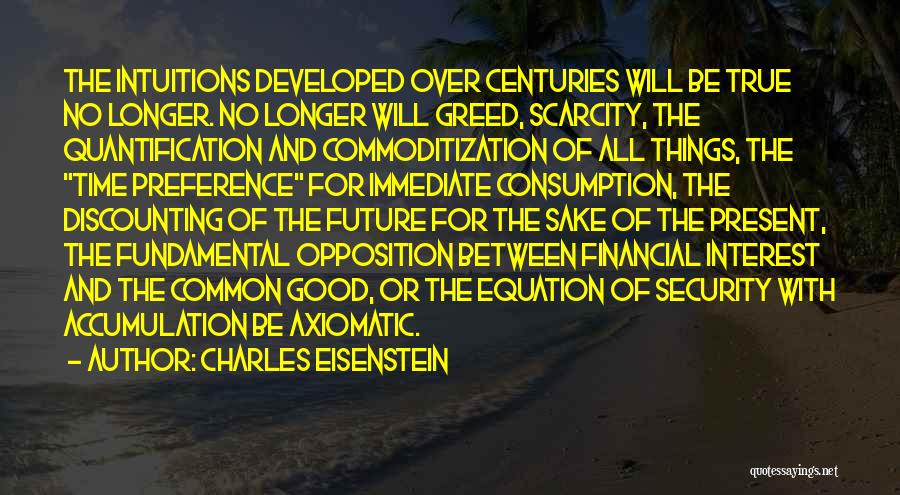
The intuitions developed over centuries will be true no longer. No longer will greed, scarcity, the quantification and commoditization of all things, the "time preference" for immediate consumption, the discounting of the future for the sake of the present, the fundamental opposition between financial interest and the common good, or the equation of security with accumulation be axiomatic. — Charles Eisenstein
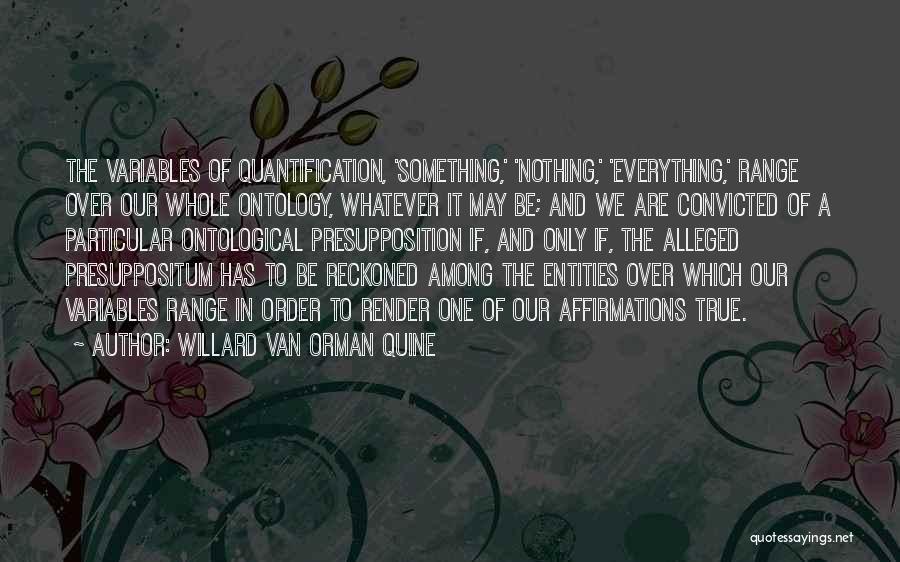
The variables of quantification, 'something,' 'nothing,' 'everything,' range over our whole ontology, whatever it may be; and we are convicted of a particular ontological presupposition if, and only if, the alleged presuppositum has to be reckoned among the entities over which our variables range in order to render one of our affirmations true. — Willard Van Orman Quine

God does not wait for us to go to him, but it is he who moves toward us, without calculation, without quantification. — Pope Francis
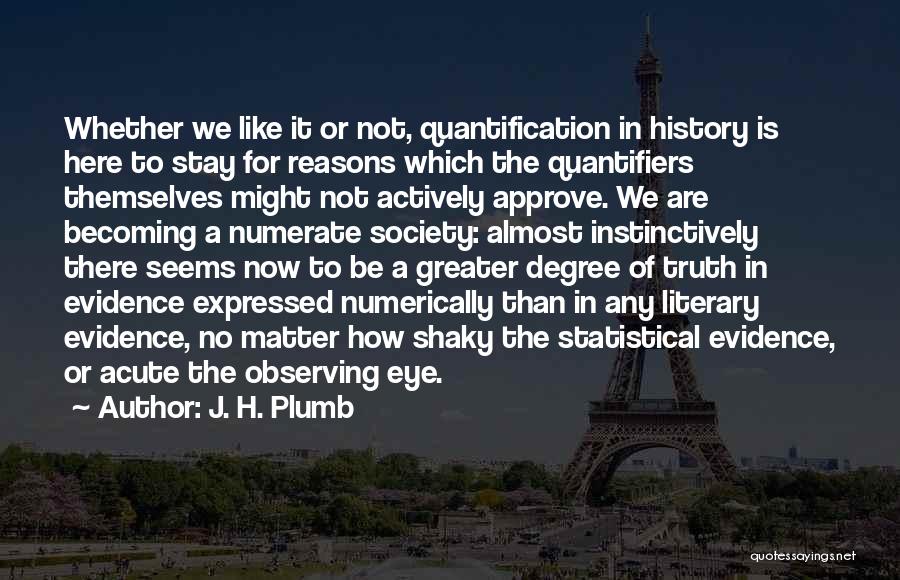
Whether we like it or not, quantification in history is here to stay for reasons which the quantifiers themselves might not actively approve. We are becoming a numerate society: almost instinctively there seems now to be a greater degree of truth in evidence expressed numerically than in any literary evidence, no matter how shaky the statistical evidence, or acute the observing eye. — J. H. Plumb

Yet the drive to assess the performance of workers and to measure forms of labor which, by their nature, are resistant to quantification, has inevitably required additional layers of management and bureaucracy. What we have is not a direct comparison of workers' performance or output, but a comparison between the audited representation of that performance and output. Inevitably, a short-circuiting occurs, and work becomes geared towards the generation and massaging of representations rather than to the official goals of the work itself. — Mark Fisher

I want my words and actions to be the quantification of my love. To make tangible the passions in my heart for the world and the people in it. — Anis Mojgani
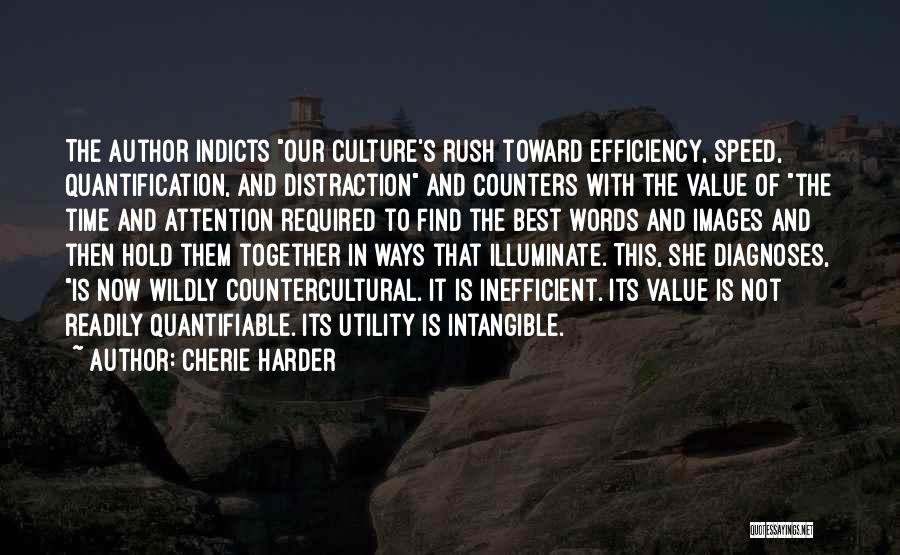
The author indicts "our culture's rush toward efficiency, speed, quantification, and distraction" and counters with the value of "the time and attention required to find the best words and images and then hold them together in ways that illuminate. This, she diagnoses, "is now wildly countercultural. It is inefficient. Its value is not readily quantifiable. Its utility is intangible. — Cherie Harder
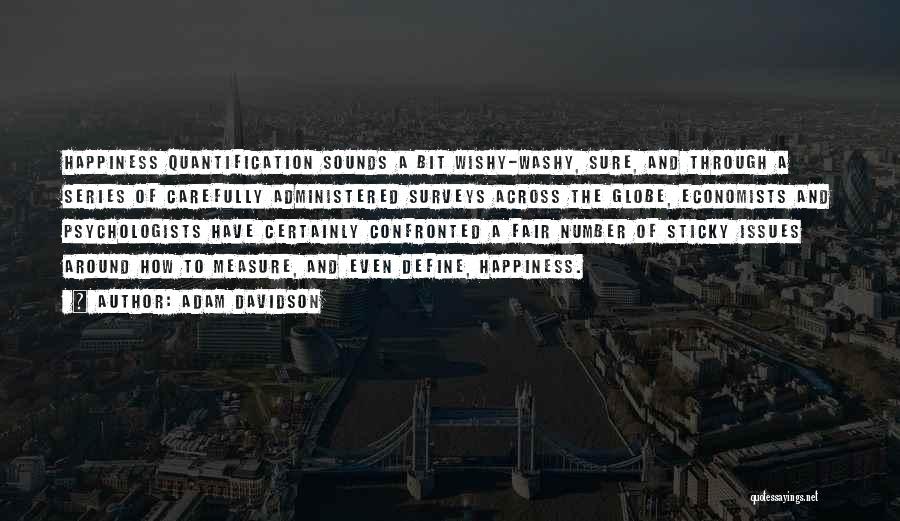
Happiness quantification sounds a bit wishy-washy, sure, and through a series of carefully administered surveys across the globe, economists and psychologists have certainly confronted a fair number of sticky issues around how to measure, and even define, happiness. — Adam Davidson
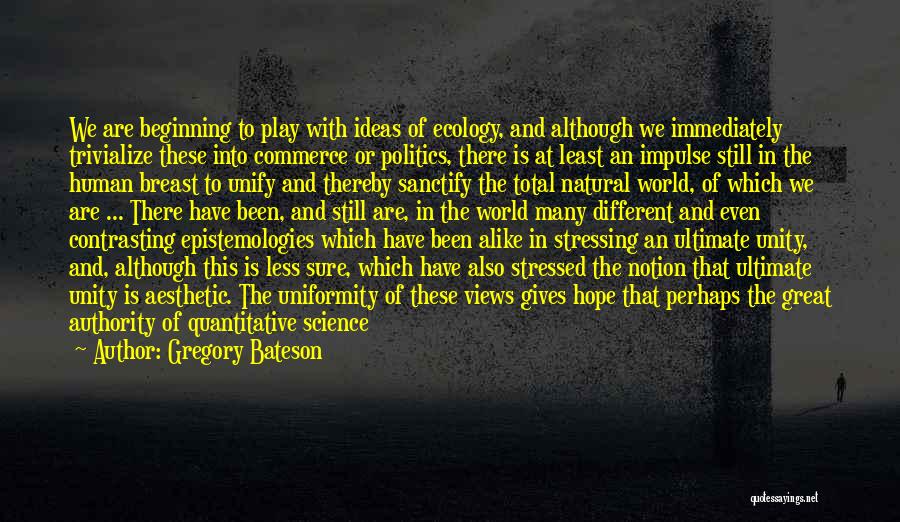
We are beginning to play with ideas of ecology, and although we immediately trivialize these into commerce or politics, there is at least an impulse still in the human breast to unify and thereby sanctify the total natural world, of which we are ... There have been, and still are, in the world many different and even contrasting epistemologies which have been alike in stressing an ultimate unity, and, although this is less sure, which have also stressed the notion that ultimate unity is aesthetic. The uniformity of these views gives hope that perhaps the great authority of quantitative science may be insufficient to deny an ultimate unifying beauty.
I hold to the presupposition that our loss of the sense of aesthetic unity was, quite simply, an epistemological mistake. — Gregory Bateson
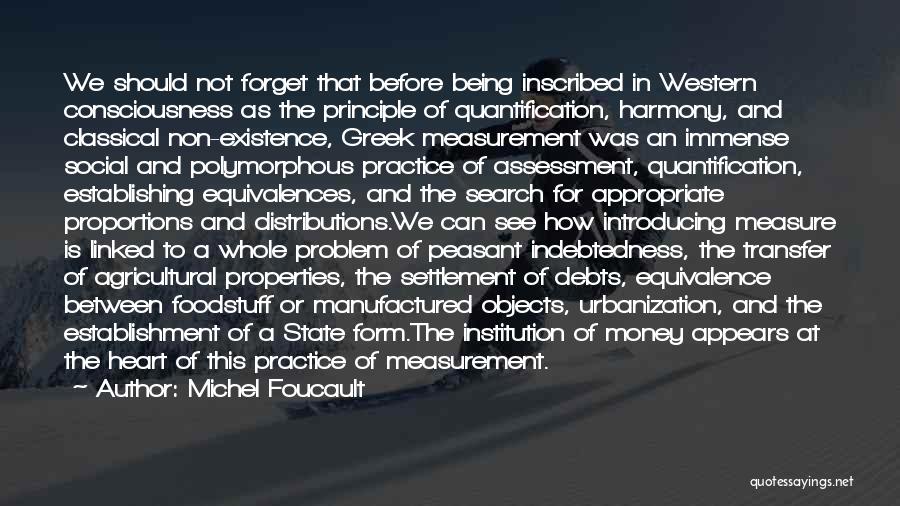
We should not forget that before being inscribed in Western consciousness as the principle of quantification, harmony, and classical non-existence, Greek measurement was an immense social and polymorphous practice of assessment, quantification, establishing equivalences, and the search for appropriate proportions and distributions.
We can see how introducing measure is linked to a whole problem of peasant indebtedness, the transfer of agricultural properties, the settlement of debts, equivalence between foodstuff or manufactured objects, urbanization, and the establishment of a State form.
The institution of money appears at the heart of this practice of measurement. — Michel Foucault
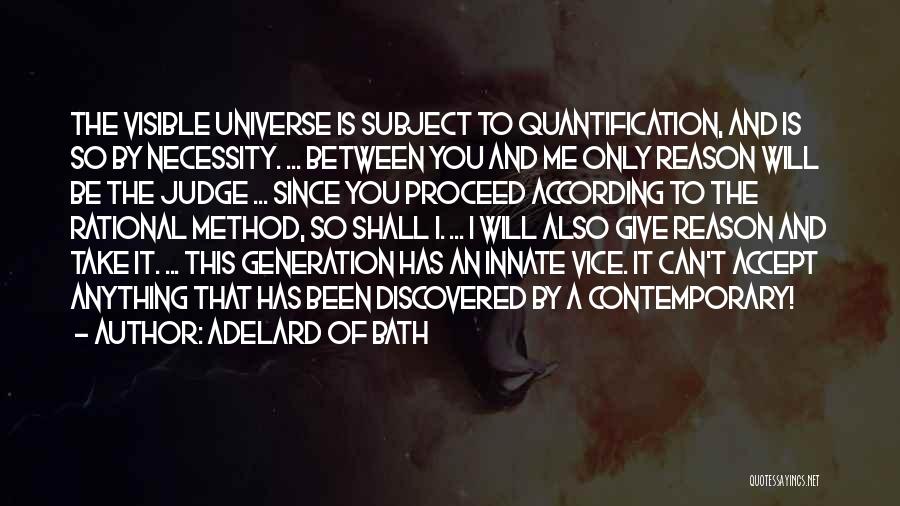
The visible universe is subject to quantification, and is so by necessity. ... Between you and me only reason will be the judge ... since you proceed according to the rational method, so shall I. ... I will also give reason and take it. ... This generation has an innate vice. It can't accept anything that has been discovered by a contemporary! — Adelard Of Bath
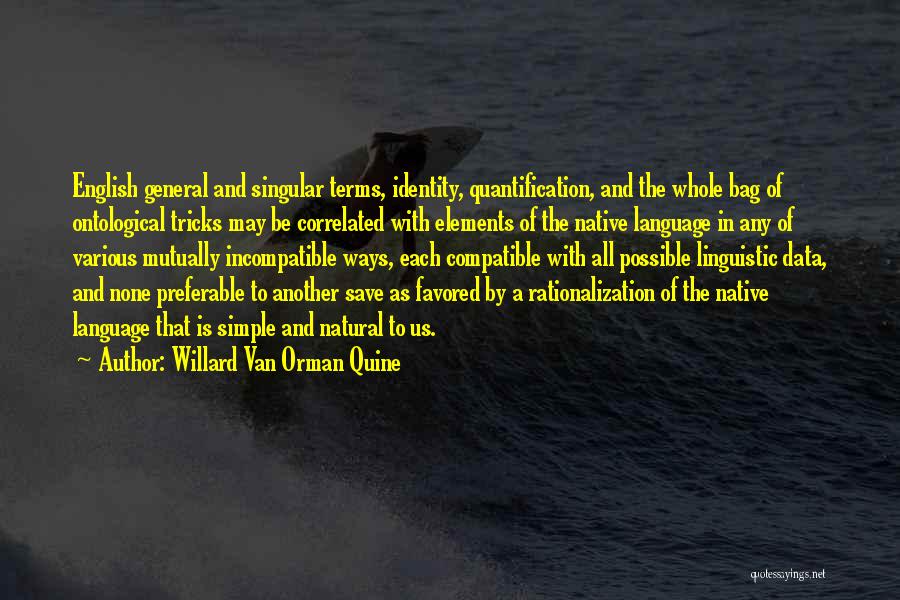
English general and singular terms, identity, quantification, and the whole bag of ontological tricks may be correlated with elements of the native language in any of various mutually incompatible ways, each compatible with all possible linguistic data, and none preferable to another save as favored by a rationalization of the native language that is simple and natural to us. — Willard Van Orman Quine





